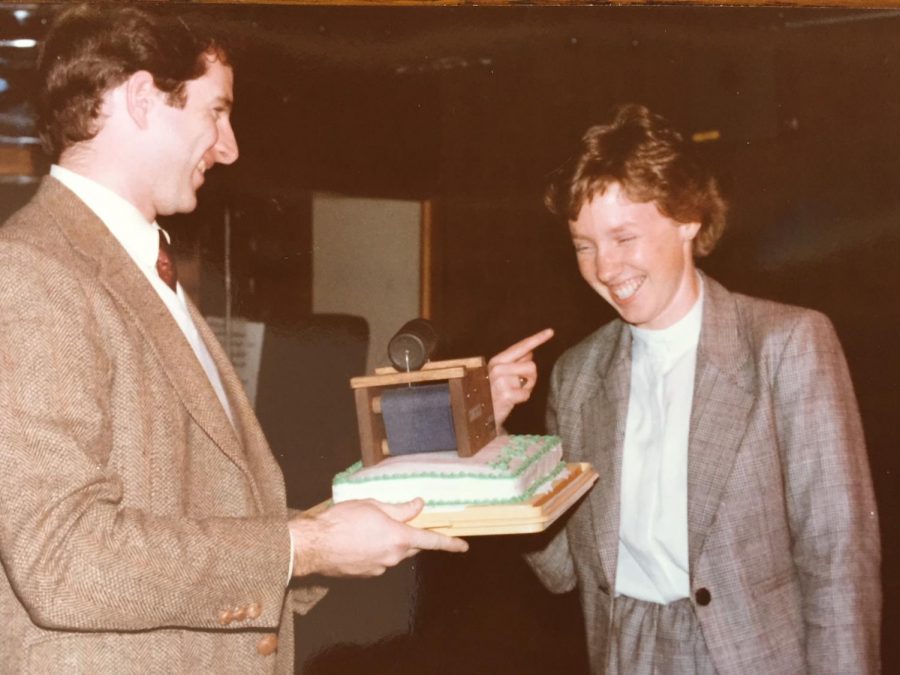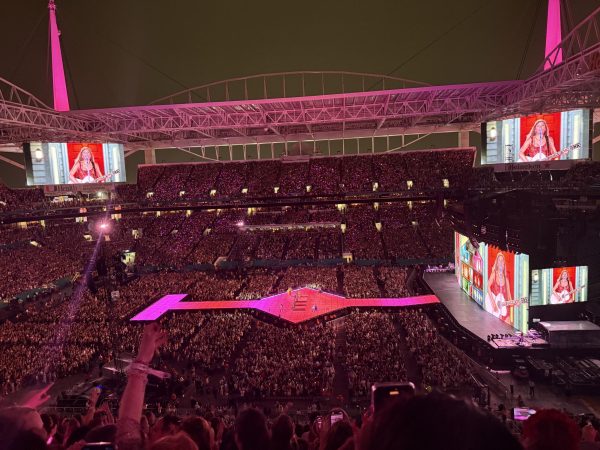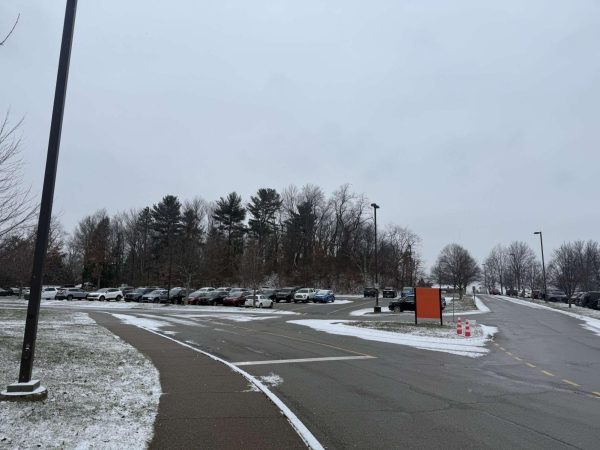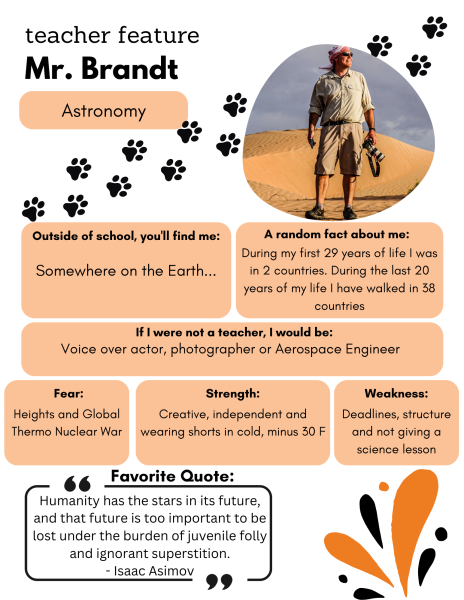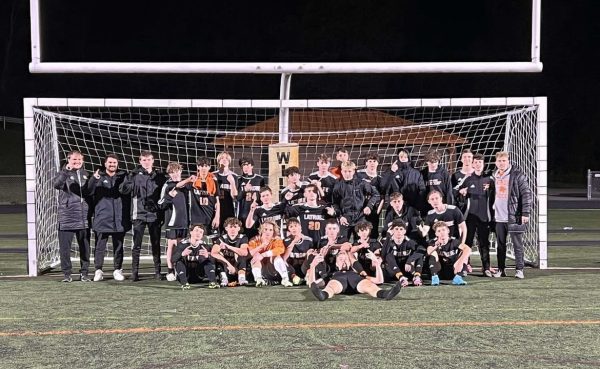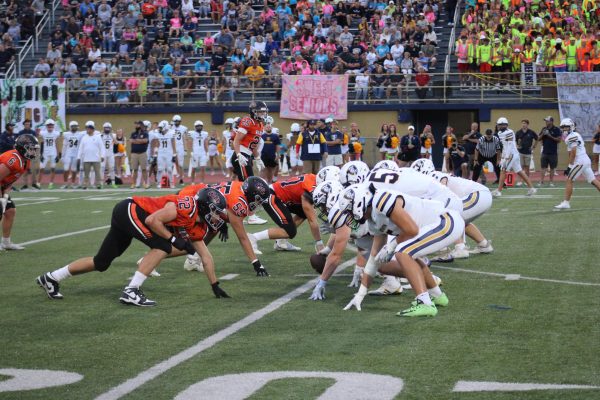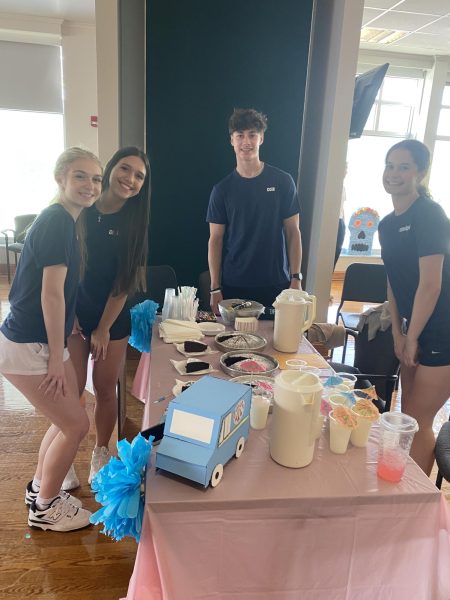Women In Engineering
In the past, women had the stereotypical role of having to be the stay at home mom and nothing else. Nowadays, women are out of the house and have entered many typically male dominated fields such as engineering. Although this is the 21st century and changes are occurring at a rapid pace, many people still have their mind set in the past and believe that women are not suitable for careers such as engineering.
Mrs. Cindy Pompelia, a mathematics teacher leader, was an engineer prior to her job as a teacher. When she was younger and deciding what path to go on, engineering was one path she had never imagined until her high school chemistry teacher introduced her to engineering. Prior to being a teacher, Pompelia’s teacher, who was an engineer, encouraged her to attend an engineering summer camp. It was here where her eyes were opened. According to Pompelia, at this camp, females and males were treated the same way.
Pompelia decided to pursue engineering at Cornell University where she described that only 15% of the students in the engineering program were women.
Although she faced some challenges prior to leaving college, her biggest challenges followed graduate school. She received her first job in Boston working as the only female in her group for a consulting company. Her first task on the job was to go out and buy a new refrigerator for the coffee area. To this day she still wonders if that task would have been given to her if she were a man.
As she was working on a year-long task in New York City. At first she started off doing engineering stuff, but as time progressed, Pompelia said she turned more into an Administrative Assistant and was now doing all of the filing. She feels as if this was unintentional, but coincidentally, she was the only female on the job and was given “typical female tasks”. Frustrated, Pompelia approached her project manager about these issues where she said that she does not remember how the problem was resolved, but instead remembers how he treated her with respect.
Pompelia noticed others treating her differently when she went into the field. Because she did water quality engineering, one of her tasks to oversee a surveying crew that was putting in new sewers in New Hampshire. It was January with ten feet of snow and yet the city crew made her get down into the sewer, a job that an engineer would never do.
Her project manager was livid and called the city crew explaining how although Pompelia is a female, she is no different than anyone else and should’ve never been given that task with her respective title.
With strength and her love for solving problems, Pompelia was able to overcome the challenges of being a female engineer. For women who would like to pursue a career in engineering, Pompelia advises, “The sky’s the limit; the opportunities are there… Just do it!”
Future engineers, senior Liz Meier and senior Gloria Hickey share their perspective on challenges they believe women who want to pursue a career in engineering face and reasons they wanted to become an engineer:
Q: What made you want to be an engineer?
LM: I have always enjoyed taking apart and building things ever since I was a kid and the engineers in my family noticed that and introduced me to engineering. I also enjoy how it combines creative problem solving with math and science.
GH: I’ve always loved being creative and enjoyed the idea of coming up with new ideas. Also, I enjoy the hands on aspect of engineering.
Q: How are you preparing now to be an engineer?
LM: I’ve been taking engineering classes since 7th or 8th grade along with math and sciences that have helped me in pursuit of a career in engineering. The classes I’ve taken are: CommTech, Introduction to Engineering and Design, Robotics Engineering, CADD, and Young Engineers. I’ve also been to some STEM related field trips, and some camps over the summer. (Summer Science and Math Experience [Grade 8], and Women in Engineering Summer Camp @ U of Dayton [Grade 11]).
GH: This year I’m taking C.A.D.D., AP Calculus, and I am also a member of Young Engineers.
Q: What are challenges that you believe you personally will face as an engineer?
LM: There are 2 main factors that challenge me as a future engineer. By being both a minority race and a female could turn employers away. Although Asians are highly represented in STEM fields, statistics show they often have difficulties moving higher in the corporate level.
GH: Since it is such a male dominated field, my biggest challenge is going to be to prove myself, so I can work my way up and be respected as well.
Q: What are challenges that you believe women who want to pursue a career in Engineering face?
Liz Meier: I believe that women in engineering tend to be given the more stereotypically “feminine” tasks in projects like documentation rather than doing the hands-on work/working with machines and tools. Personally I haven’t experienced this, but I have heard stories from women engineers of male counterparts making jokes/remarks about how capable they are of their jobs and just assuming they are less qualified than them.
Gloria Hickey: I think the fact that fewer women overall is a big challenge since it has been such a male dominated field. In addition, it is a challenge just to prove that you are just as capable.
Q: Do you believe female Engineers are treated differently than male Engineers?
LM: Yes, I believe female engineers are often treated differently than male engineers. If they were treated equally there wouldn’t be so many programs set up to help them succeed in the workplace, there wouldn’t be a pay gap, etc.
GH: Yes some in good ways and some in bad ways. Some are treated badly because of the low quantity of women that are in the field. In another perspective, now that women are going into engineering, men may see the women as bold and respect that.

Bianca Pate is the Copy Editor, Online Editor, and Assistant Editor in Chief for the High Post. When she is not writing articles for the High Post, you...


